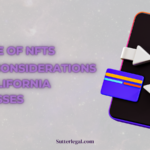Table of Contents
Key terms to know before signing an Employment Severance Agreement
As a seasoned California Employment Attorney based in San Francisco, I have seen severance agreements in all shapes and forms. Before you sign any severance agreement you MUST know your rights. Here are some key points you should know as you review your termination agreement.
Payment:
In order to be enforceable, the agreement must pay the employee as a condition of signing the severance agreement.
Note, that the money paid cannot include earned vacation (Paid Time Off) PTO, the final paycheck, or other payments earned by the employee. But rather, the payment must be some consideration that the employee is not already entitled too.
Noncompete:
California does not allow the employee to sign a noncompete. California has a strict public policy that will not allow employers to issue a noncompete as part of a severance agreement or other agreement.
The State of California values competition, and also values social mobility. Meaning the State wants employees to have the ability to seek new employment without restrictions. (there are some exceptions to the prohibition of non-compete which apply to an acquisition or merger M&A of a business)
Non-disparagement:
Most companies require a non-disparagement clause in their Severance Agreements. In plain English, this means that the employee will not make false or negative statements about their former employer.
This can also go both directions, meaning the former employer will not make negative statements about the former employee.
Full Release:
The most important clause in a Severance Agreement is the full release. This clause ensures that the former employee will not be able to sue their former employer in the future for any reason, in exchange the employer MUST pay the former employee something they were not already legally obligated to pay.
The most common is a payment of cash, however, a stock grant, or other forms of payment is legally acceptable.
COBRA:
Some employers offer to pay between 3-6 of the COBRA payments. For those who don’t know COBRA allows a former employee to keep their employment health insurance when they are looking for a new job.
However, COBRA payments can be very expensive. Therefore, as a sign of good will some employers offer to pay for a few months to ensure that the former employee is covered during their job search.
Nonsolicitation:
Nonsolicitation of other employees and of company customers is not allowed under California employment law. Under some circumstances, an employer can limit your use of confidential and proprietary information to solicit your fellow employees and customers.
For example, you cannot take a list of all customers and employees from your employer.
This is not intended to be a full and complete list of terms; this is just a summary of some key areas. We offer a free consultation with an experienced employment attorney to discuss your rights. If you would like to schedule a time you can call or email us to set an appointment.






